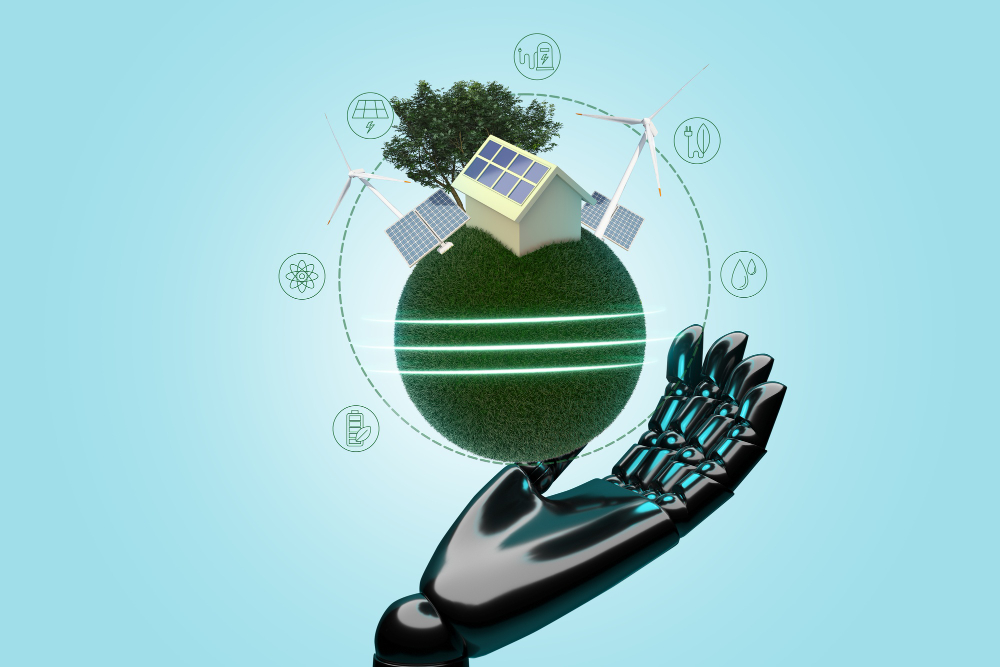In our modern age, the pressing issue of climate change demands innovative solutions. Leveraging the power of Artificial Intelligence (AI) presents a promising avenue in the fight against this global challenge. From optimizing energy consumption to revolutionizing environmental monitoring, AI holds the key to mitigating climate change impacts effectively.
AI-Powered Energy Management: Redefining Efficiency
AI-driven energy management systems are revolutionizing how we utilize resources. By analyzing vast datasets, AI algorithms can identify patterns and optimize energy consumption in various sectors, including manufacturing, transportation, and residential areas. Smart grids, enabled by AI, can balance energy supply and demand dynamically, reducing waste and reliance on fossil fuels.
Enhancing Renewable Energy Production
Renewable energy sources such as solar and wind power play a crucial role in reducing carbon emissions. AI algorithms optimize the efficiency of renewable energy systems by predicting weather patterns, adjusting energy output accordingly, and maximizing generation during peak conditions. Additionally, AI-driven innovations in energy storage solutions enhance the reliability and stability of renewable power sources, overcoming intermittency challenges.
Precision Agriculture: Sustainable Food Production
The agricultural sector is both a contributor to and a victim of climate change. AI-powered precision agriculture techniques offer sustainable solutions to enhance productivity while minimizing environmental impact. By analyzing soil conditions, weather data, and crop health metrics, AI algorithms enable farmers to optimize resource utilization, reduce water usage, and mitigate deforestation, ultimately promoting ecosystem preservation.
Eco-Friendly Transportation Solutions
Transportation is a significant contributor to greenhouse gas emissions. AI-enabled transportation systems offer eco-friendly alternatives to conventional modes of travel. From optimizing traffic flow to facilitating the transition to electric and autonomous vehicles, AI technology enhances fuel efficiency and reduces carbon footprint. Additionally, ride-sharing platforms powered by AI algorithms promote carpooling, further minimizing emissions and congestion.
Environmental Monitoring and Conservation
Effective environmental monitoring is crucial for understanding climate change impacts and formulating adaptive strategies. AI-driven sensors and remote sensing technologies enable real-time data collection and analysis across diverse ecosystems. From monitoring deforestation patterns to tracking wildlife populations, AI contributes to conservation efforts by providing actionable insights for policymakers and conservationists.
Conclusion: Embracing AI for a Sustainable Future
In the battle against climate change, harnessing the capabilities of AI is not just an option but a necessity. By integrating AI technologies into various sectors, we can achieve greater efficiency, minimize environmental degradation, and pave the way for a more sustainable future. However, collaboration between governments, industries, and innovators is essential to realizing the full potential of AI in combating climate change and preserving our planet for future generations.







